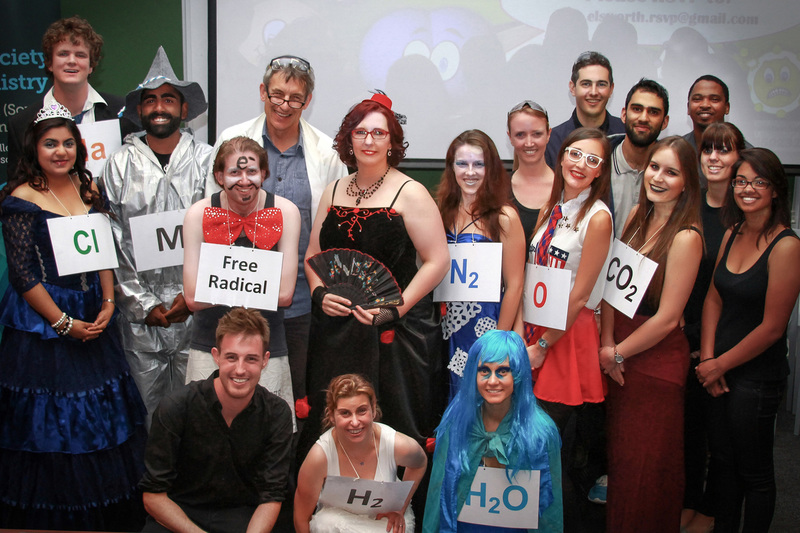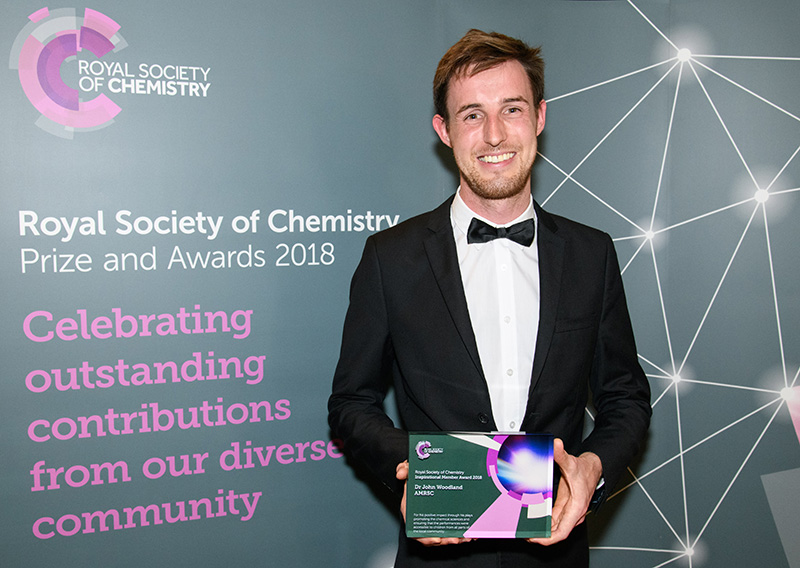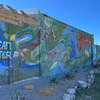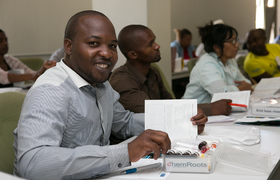Learning through play
05 September 2018 | Story Kim Cloete. Read time 7 min.
The inspiring work of a postdoctoral researcher who writes and directs plays to help ignite an interest in chemistry among schoolchildren has earned him a special award from the prestigious Royal Society of Chemistry (RSC).
Dr John Woodland, who is a Fellow in the University of Cape Townʼs (UCT) Department of Molecular and Cell Biology, has co-written and co-directed three plays for schoolchildren – The Wizard of O2, Harry Potter and the Molecule of Doom, and How to Train Your Molecule.
Complete with explosions, experiments and catchy storylines which touch on climate change, diabetes and other topical issues, the plays have been a hit with the youngsters, and have also developed a following among UCT students, staff and beyond.
“I see it as a way of bringing chemistry and science into the real world,” said Woodland, who hopes to excite and inspire the next generation of scientists.
He says much of the credit should go to his colleague, Dr Kathryn Wicht, for working with him in co-writing and directing the plays.
The Royal Society of Chemistry, an international publishing and knowledge organisation, presented Woodland with an Inspirational Member Award for “his positive impact through his plays promoting the chemical sciences, and ensuring that the performances were accessible to children from all parts of the local community”.
The RSC’s awards are made to a few of its 50 000 members “who have gone the extra mile to support the society’s work”.
Woodland travelled to London for the awards ceremony, and was excited to rub shoulders with some of the brightest lights in the field of chemistry.
“To be acknowledged in that way was very special. We might be on the southern tip of Africa but to realise that we can make a positive impact and be on a par globally through our research and outreach was most inspiring,” he said.
“Chemistry is all around us … in the food we eat, the materials we wear, the technology we use, the medicines we take.”
A wider audience
The annual plays, held at the end of the year, have become a tradition in the Department of Chemistry in the Faculty of Science. They started when UCT lecturer Jack Elsworth decided to give an annual public lecture–demonstration and have developed over the years.

The productions are staged on UCT’s upper campus, mainly for the UCT community and their families. But in recent years, Woodland has brought them to a wider audience.
Together with the university’s Schools Development Unit, his team arranged for hundreds of children to come to UCT by bus to see the play in the PD Hahn main lecture theatre, which seats 400 people.
Woodland stresses that the plays are a truly collaborative effort, with postgraduate students doing the acting and even some involvement from academic staff.
“Scientific officers are involved in setting up and running the experiments. Students put together the lighting, costumes, backstage and music. They’re an amazing team of people, who all volunteer their time freely,” he said.
“It provides a real sense of community. It’s also an important break from the demanding postgraduate research programme. One can spend an hour or two in the early evening strutting one’s acting stuff and putting together experiments with friends, just for fun.”
The 10 or so experiments that are woven into each play have proved a winner with audiences, who gasp and laugh at the explosions and effects, and hopefully learn something in the process.
A favourite is creating “elephant’s toothpaste”, when hydrogen peroxide mixes with a potassium iodide catalyst in a measuring cylinder, shooting out “a huge, foamy, bubbly thing”.
“When Harry Potter has to go through the Forbidden Forest, the characters experiment with making a lantern that is bright enough to light up the dark area,” Woodland explained.
“After insufficient light is generated from a series of metal salts, Harry and his friends can finally explore the forest when the lantern is lit with a piece of magnesium that gives off a very bright white light.”
Molecules and emissions
Sugar is the scoundrel in Harry Potter and the Molecule of Doom. The play was devised around the time that the Banting diet had become very popular. The story homes in on sugar as the “molecule of doom” for, while it is fine in small quantities, it can cause diabetes and other health problems if consumed in large quantities.
“It was all about molecules going to school and learning how to bond and interact with one another.”
“The following year, the movie How to Train Your Dragon 2 had been on the circuit. We adapted it and called it: How to Train Your Molecule. It was all about molecules going to school and learning how to bond and interact with one another.
“Sodium and chloride ended up falling in love with one other after the simple exchange of an electron,” said Woodland.
“The Wizard of O2 and its narrative on climate change arrived in a flash of inspiration,” he added. The play was all about defeating the evil, carbon dioxide-emitting Wicked Witch, with the Tin Man as a key character.
“The play helped to explain how increased carbon dioxide and other emissions in the air bond with water vapour to form acids. When that rains down, the acids are corrosive and cause some metals to rust.
“That’s why the Tin Man was stuck in the forest – he had rusted there due to acid rain.”
Making the curriculum exciting
Woodland, whose research has focused on infectious diseases, says the award has inspired him to do more outside the laboratory.
“One of my goals in life is to be in a position to make the science curriculum more relevant and exciting.”
An idea is to take the plays out into the community, to schools and libraries and perhaps even to theatres.
“Science communication is something I’m passionate about and there’s so much scope to be creative in science here in South Africa,” he said, adding that the chemistry school syllabus could be very dull and boring, and detached from reality, where access to resources is constrained.
“Yet chemistry is all around us … in the food we eat, the materials we wear, the technology we use, the medicines we take …
“When you realise that and appreciate how everything fits together, it can be incredibly exciting.”
 This work is licensed under a Creative Commons Attribution-NoDerivatives 4.0 International License.
This work is licensed under a Creative Commons Attribution-NoDerivatives 4.0 International License.
Please view the republishing articles page for more information.










